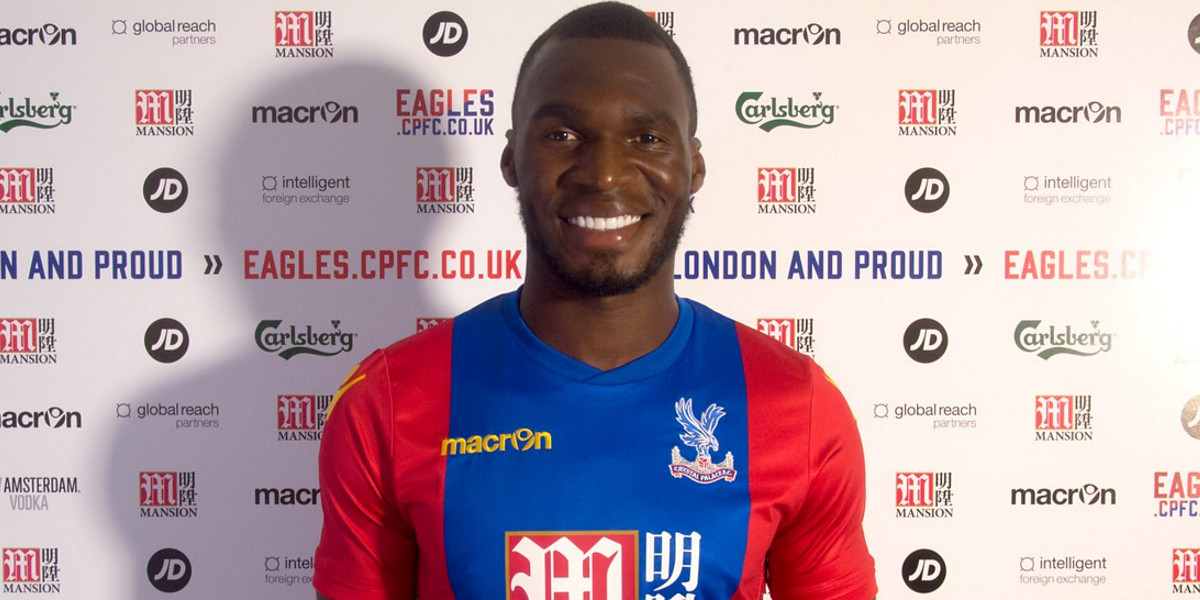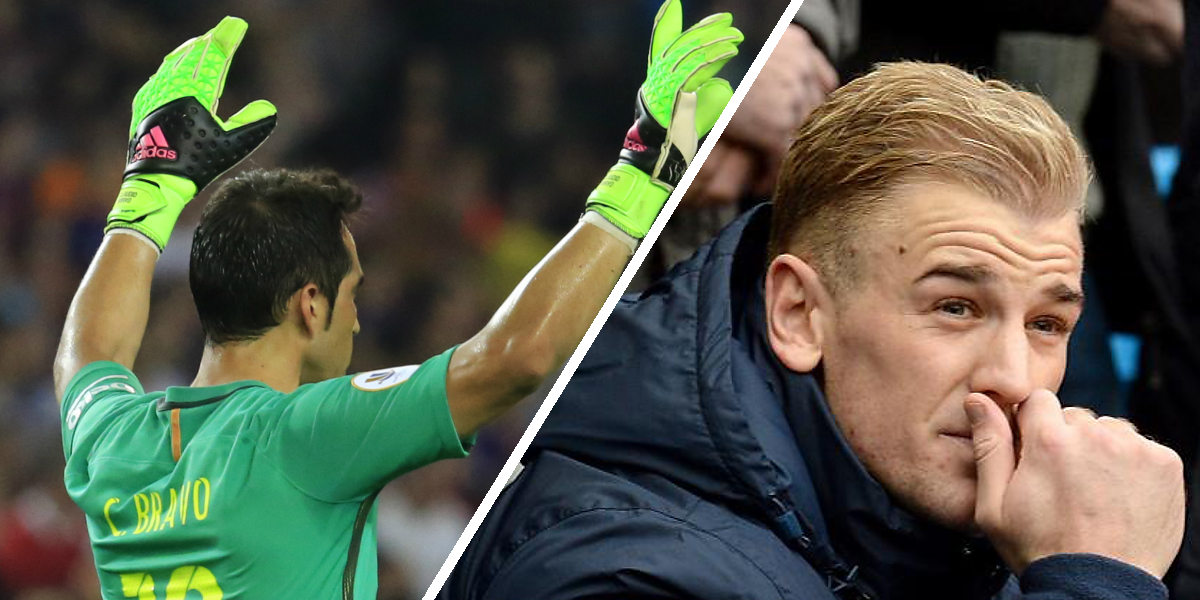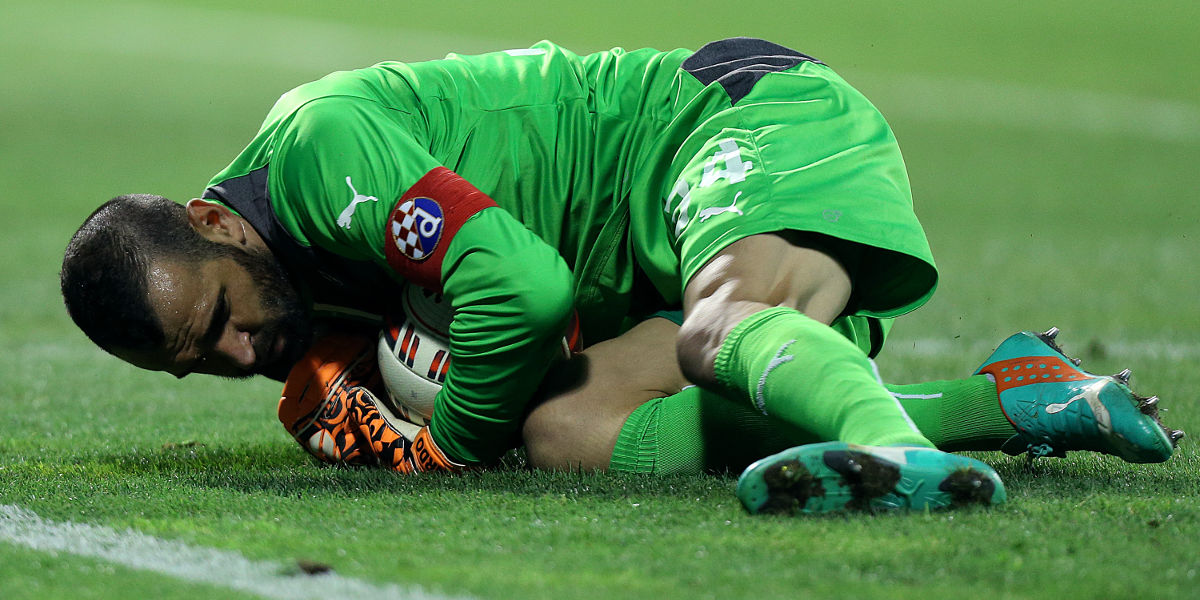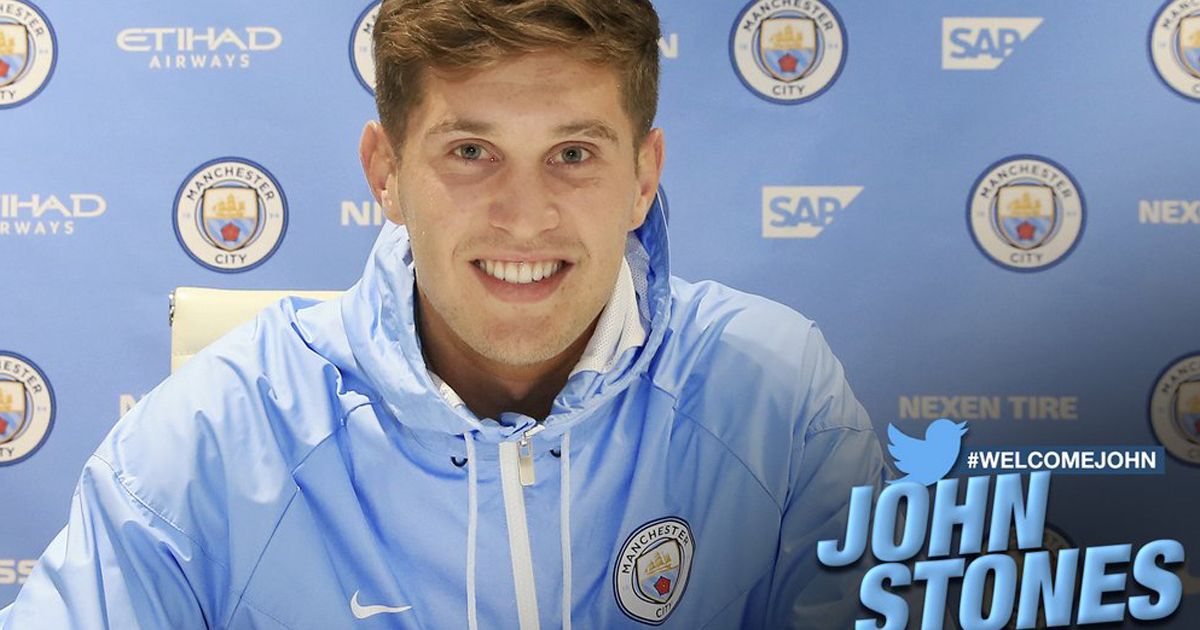15
Mar 2012
13:19 Comments (0)
Champions League, 13 and 14 March, by Rafa Benítez.

After the second legs of the knockout stages of the UEFA Champions League, we now have the names of the clubs that make up the select group who will contest the quarter-finals. After the two matches on Tuesday and the other two played yesterday, we now know who will accompany Milan, Apoel Nicosia, Barcelona and Benfica in the draw which will take place tomorrow and decide the clashes in the search of the final two who will play at the Allianz Arena in Munich next May. And as there was a lot to debate, we will have a look at the highlights.
Bayern Munich, 7-FC Basel, 0.
To talk about systems in this kind of game would not make much sense. However, we will say that Bayern started with 1-4-2-3-1 and Basel played 1-4-4-2. It is obvious that the systems made no difference but rather the huge imbalance in quality between the two sides which always favoured the Bavarians.
From the start of the game, Robben was out to create danger time and again on the right and in the first few minutes we saw a dangerous counterattack when he dribbled inside on his left foot and made a wall pass in the box showing his readiness and motivation for the game.
With this high tempo set by the Germans in the first few minutes the first goal was expected and it did come, albeit in the most unexpected way. It was a deflection, which behind the defence and it fell to Robben to open the scoring.
Twice in a minute there were chances for Mario Gomez which indicated that the Swiss were going to have a bad night but no one really expected how bad it would be.
Robben, as I said, was very active in the opening minutes, dribbling inside and looking for one-twos or shooting chances, and the Swiss defence could not stop the dominance of Bayern (60% of possession) which became more apparent as the minutes passed. When after 41 minutes the second goal came following a counterattack that ended with a pass from Robben for Muller to make it 2-0, the match seemed almost over. It became a reality, when it became 3-0 in the 43rd minute, a Badstuber wide free kick pulled back for Mario Gomez to shoot was a further blow to the morale and hopes of Basel. Of course, this meant it would be a difficult and entertaining second half.
In the second half, the visitors had to try to do something. Their only plan was to make runs behind Lahm when he was attacking and try to come out on the counter when they could. But as they were so deep, they hardly got close to the opposition goal. They were organised and worked together, but did not have the quality to surprise the Germans.
Ribery took over from Robben and in the following three goals, the fourth, fifth and sixth, he raced past his full back to lay three goals on a plate for Mario Gomez, who scored a total of four and credited Ribery publicly.
Another highlight was Schweinsteiger’s return after his injury, which will give more quality to the Bayern midfield. He confirmed this with a pass to Robben to make the score 7-0. The Bavarians have scored 14 goals in their last two games. Seven in the Bundesliga and the same in the Champions League.
In short, an entertaining game, but in which the superiority of Bayern was apparent from the opening whistle right to the end. A match that left us with the impression that, on their day, Bayern should not be discounted from making it to the final in their own stadium in Munich.
Inter Milan, 2-Olympique Marseille, 1.
A surprise, although some people in Milan may not think so. Inter are out of the competition to get to the final in Munich after a game that could have gone either way, and which looked as if it was heading for extra time but ended in the most painful way possible. Curiously, both the first leg in Marseille as well the second in Italy were eventually decided in injury time. Some would say that this was part of the script and that it is also the attraction of football. Until the referee blows the final whistle…
If we refer to the tactical approaches that they started with, each had their own approach. A tried and tested 1-4-3-1-2 for Inter, as was expected and which they have used a lot although alternatives have been used throughout the season, and a 1-4-2-3-1 with a very physical double pivot, for Marseille who were expected to slow the tempo more than they eventually did. The home side were dominant, trying to be mostly very direct and this gave the impression they were in control of the game. But the ones who kept the ball better, and had control in their own way, having the game where they wanted, was the Marseill
The Italian team had their chances which, it must be said, the French goalkeeper saved with some luck, especially Milito’s attempt with his chest. Inter Milan played at a slower tempo in the second half and their French opponents held out well watching the clock as they approached their target. They were always very together, except perhaps in the period between 1-0 and 1-1, where they had a sort of “panic attack” and appeared to be ‘on the ropes’. Just when it appeared that the tie was heading for a draw, with Inter’s elimination on the horizon, there was a messy Milito goal to equalize and head towards a period of extra time.
Then came the final acts, a disastrous epilogue for the home team. The key moment was a miscalculation by the home defenders after a free kick by Mandanda. Brandao, not without the kind of luck needed in these situations, gained control of the ball with his back and beat Julio Cesar to give his own goalkeeper an unexpected assist. The rest of the game was left with futile Nerazzurri efforts and attempts. There was simply no time to parry a fatal blow. Then came the penalty, with the consequent sending off of the Olympique goalkeeper for two bookings, and Pazzini’s goal only served to embellish the story of a game that fluctuated from low to high in emotion and intensity. Inter were out and Didier Deschamps leads his team on a path not trodden since the nineties, when they ended up being the Champions in the final.
Chelsea, 4-Napoli, 1.
A match that promised to be exciting and actually met those expectations. Chelsea started the clash with their ‘veterans’ on the pitch to confront a Naples who arrived with confidence and it showed in the first few minutes with several attempts on Cech’s goal which were all quite dangero
The London club used a system of 1-4-2-3-1 in which Ramires started in midfield on the left and with Sturridge on the right, Drogba up front and Juan Mata behind him.
The Italian side, with its routine 1-3-4-3 and high work rate by the wide players, was hit by an injury to Maggio (36’) and forced to make a change with Dossena entering on the left and Zuniga moving to the right.
It did not alter their style of play, playing out from the back whenever possible and good mobility of the front players, with one coming to receive between the lines and another, usually Cavani, running behind the defence.
After an early opportunity for Sturridge in the first few minutes, Napoli had their chances. Hamsik, Cavani and Lavezzi each had pretty clear chances in the early stages of the match.
As for Chelsea, although Ramires starts on the left, he moves inside to make room for Cole to attack and on the right it was Ivanovic who had plenty of time to receive and decide what to do with the ball. But his crosses did not really create too much danger.
Mata and Lampard could not find any gaps in the middle, where Napoli were defending well. Just when it seemed that the sky blues were controlling the match, as often happens, a cross from the left of Ramires was superbly finished by Drogba to make it 1-0. Then, more British pressure for the next few minutes, but the prevailing sense of danger came from the Italians on the counter.
Possession was controlled by the English team, 67% to 33%, although the Napoli players were still dangerous on the counterattack.
Chelsea tried to move the ball patiently looking for the gaps in the defence. To this end, Lampard was dropping deeper to receive the ball. His teammates still had a hard time finding him.
The first half ended with the visitors struggling to deal with a David Luiz cross and you sensed it would be a very interesting second half.
After the restart we were not disappointed, as a header in the 47th minute by John Terry from a corner put Chelsea ahead. But a little later, on 55 minutes, Inler scored a good goal from outside the area putting the Italians in the lead again.
Torres replaced Sturridge on 60 minutes and went up front but slightly to the right. From the first minute on the pitch you could see that he was up for it and knew that to regain form he had to work hard. And he did it all the way to the end to help his teammates, especially when fatigue began to set in and those who had come off the bench were, of course, the freshest on the field.
Chances for both teams followed until a penalty for handball by Dossena was put away by Lampard and give the lead back to Chelsea.
The match was more open, Napoli had more of the ball and both teams were still creating chances. The Londoners had 17 attempts on goal and the Italian team had 16, so the numbers bear out the feeling we had during the game that both teams needed to score and not just sit back. Especially as the away side normally have an advantage.
In extra time, changes were made to replace the players who were tired or injured, as in the case of Terry, but the pattern was the same: more space and more sense of danger from both sides. Everyone knew Napoli players were dangerous on the counterattack. But when the front players drop to receive and you allow them to get turned, they also show they are dangerous in combination play around the box. However, Chelsea scored their goals from long balls and set pieces or second balls, and looked more dangerous with more space (Torres and Drogba chances) than their combination play against a compact Italian team.
In the final minutes, Chelsea managed the game to let the minutes run down and get a result that makes them the only English team in the draw for the quarterfinals stage of the Champions League.
Real Madrid, 4-CSKA Moscow, 1.
Real Madrid found a way to end up winning by a big margin against CSKA although the score of 4-1 may be misleading as the ‘whites’ went through with more difficulty than at first thought. And once again the Russian team was a difficult opponent at the ‘Santiago Bernabeu’ ready to play their game and use the few chances they had to spring a surprise. They failed because the Madrid squad is far superior and because if we add to that some serious unforced errors by the visitors, the mission becomes impossible. Cristiano Ronaldo’s double bolsters his quite impressive conversion figures, as have the other players competing for a position Real Madrid’s attack: Higuain and Benzema.
Madrid set up with their usual 1-4-2-3-1 with some clear movements. For example, the movements of Ozil and Ronaldo coming inside and leaving room for the full backs to get forward, especially Marcelo down the left wing for the home team.
As I mentioned, Real Madrid are a side with many more resources and technical-tactical ability than their opponents who, in parts of the game, used a long ball or quick transition with few touches and they were very effective. Almost from the outset Real Madrid were camped in the opposition half, the two centre backs fixed in the centre of the pitch, they had more possession of the ball and good movement of their wide players coming inside and between the lines, especially Ozil and C.Ronaldo. They managed to create numerical superiority on the left with the incorporation of Marcelo, and they moved the ball well from the initiation zone and imposed a lively tempo on the match. Although at all times they had control, in the last third they showed low intensity and physical capacity and their pressing was less coordinated and effective. However, good finishing and the great quality and ability of their players in the final third gave them victory in the tie.
In opposition, CSKA protected themselves with a system of 1-4-4-1-1 or 1-4-2-3-1 depending on the movements and offensive mentality of their players, and have been doing this since the departure of Wagner Love, with two lines of four who dropped off together to the edge of the box and frustrated the intentions of Real Madrid to overcome them. They wait in their own half to start pressing which, as usual, was not too oppressive. The absences of Honda, out of the squad, and Mamaev, initially on the bench, meant they lost some of the ability to attack. However, they were always looking to get out on the counter, to regain and try to surprise the opposition using their striker, Seydou Doumbia at the right time.
Maybe that’s why their play is mainly based on short transitions, quick on the counter, as stated above, and with few shots and irregular success. They were more successful in the first third of the game on the right, with a wasteful Musa, who too often left himself without space. At times Doumbia made runs in to the wide spaces behind defenders and Dzagoev made movements between lines, but they had little continuity, tempo and intensity generally in their offensive movements.
They looked disorganised and lacked coordination in defence, especially in their lateral movements inside, and they failed to stop the overload and numerical superiority which their opponent was creating on the left. Aleksei Berezutski is very slow and his twin, Vasili, was not very successful covering and helping his full back. Finally, there was too big a distance and little balance between lines and they showed poor defensive positioning, uncoordinated in the full backs’ zones and behind the two centre backs. Sometimes, they dropped off in to their box with a lot of players, but they were more static and reactive than really effective.
In short, the eight teams that will enter the intriguing draw for the quarterfinals of this year’s Champions League include two Spanish, FC Barcelona and Real Madrid, and one of each of the following nationalities: Chelsea as the English side, the Italian side is Milan, Bayern Munich for Germany, the Portuguese team, Benfica, the French club Olympique Marseille and Apoel from Cyprus






















